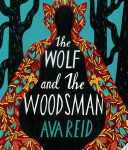I received this book for free from in exchange for an honest review. This does not affect my opinion of the book or the content of my review.
 Known Devil on 2014-01-28
Known Devil on 2014-01-28 Buy on Bookshop

My name’s Markowski. I carry a badge. Also, a crucifix, some wooden stakes, a big vial of holy water, and a 9mm Beretta loaded with silver bullets. A new supernatural gang is intent on invading Scranton – as if I didn’t have enough to contend with! Supernatural gang warfare? Not on my watch! File Under: Urban Fantasy [ Fang Warfare | Invading Forces | Uneasy Alliances | The Devil You Know ]
In which I talk, not about the book, but about the lessons it’s teaching us.
This series puzzles me a lot. I have read a lot of this author’s work and enjoyed almost all of it, so I’ve given this series a very large dose of benefit of the doubt. It’s not that the plot or characterization is confusing — they’re not. It just seems that the deep, moral lesson of the series can be a bit heavy-handed.
As the main character of our series, we have an ordinary human detective whose cultural heritage would find him the butt of many a joke. We know this, because it’s mentioned in every book. This man himself, at the start of the series, has a deep-seated hatred himself of a cultural group — namely, vampires; and he’s not too fond of the other types of supernaturals living in his city either.
Soon, Markowski has to face his own prejudice: both his daughter and his partner become blood-suckers. Crazily, we find out that Markowski had his daughter turned *at his own request* because she had a fatal medical condition. The choice was either undeath or true death. This complicates his feelings even more, as he hates the undead but loves his daughter. He despises what she became, even while admitting that it’s better than having her dead. He can’t hate his daughter when she was turned, not by her choice, but by his. He can’t hate all vampires when she is one of them.
So essentially we have this bigoted man whose job and home life have both forced him to confront the fact that he hates by default a class of people that includes the person he loves most AND the people that, as a police detective, he is supposed to be trying to protect. Couple this with an outside conflict with a man whose goal is complete obliteration of all the supernatural species — a goal that, perhaps at least at the beginning, Markowski may not have been too antagonistic towards.
However, the law he prizes is now on the side of the creatures he hates. He is slowly exposed to the very real, thinking, feeling beings at the source of his hatred. It’s his duty to protect with his life the thing he hates most… And eventually, he starts to see the supernatural community not as a group of monsters but as distinct people with their own individual wants and desires. Just like humans.
I wish prejudice was so easy to handle in real life. Pick a marginalized group and their story could echo the obstacles found in this series. Hatred on the street just for being different? Check. Blamed for their own disadvantages? Check. Even while hatred and politics keeps them disadvantaged? Yep. The cops who are supposed to be protecting them being a source of the problem? Oh, hell yes.
Feminists. POC. LGBTQ. The poor. Pick a group and they could be dropped into this book without much trouble. Does the author intend to speak about one of these groups? Or maybe all of them? Or perhaps it’s none at all and my own experiences with trying to be a champion and ally are coloring my reading. (Possible, but I think unlikely. I did say the moral lesson seems to be pretty thickly laid down here.)
The point of the thing, I think, is that we shouldn’t let ignorance and fear (and especially our politicians) convince us that people different from us are automatically the enemy. As humans, our brains like to classify things, but it’s all a lie. There is no such thing as “the vampires” or “the goblins”. “The gays”, “the blacks”, “the feminazis”, “the welfare moms”… Those labels are all a lie. Lies completely fabricated at times by people who want to point our hatred in a specific direction for their own benefit.
There are just people. People who are trying to do the best that they can with the life that they were given. Even people who make the wrong choices should be given enough of our respect to be seen as PEOPLE and not as a stereotype. And when I say this, I’m thinking of the series’ recurring antagonist: a rich, white man who was willing to wipe out entire groups of people for his own gain. Even he is just a man: an evil, misguided, ignorant and greedy man who made his own choices and now — after this latest book — has to deal with the consequences of them.
If only real life worked out so well.


